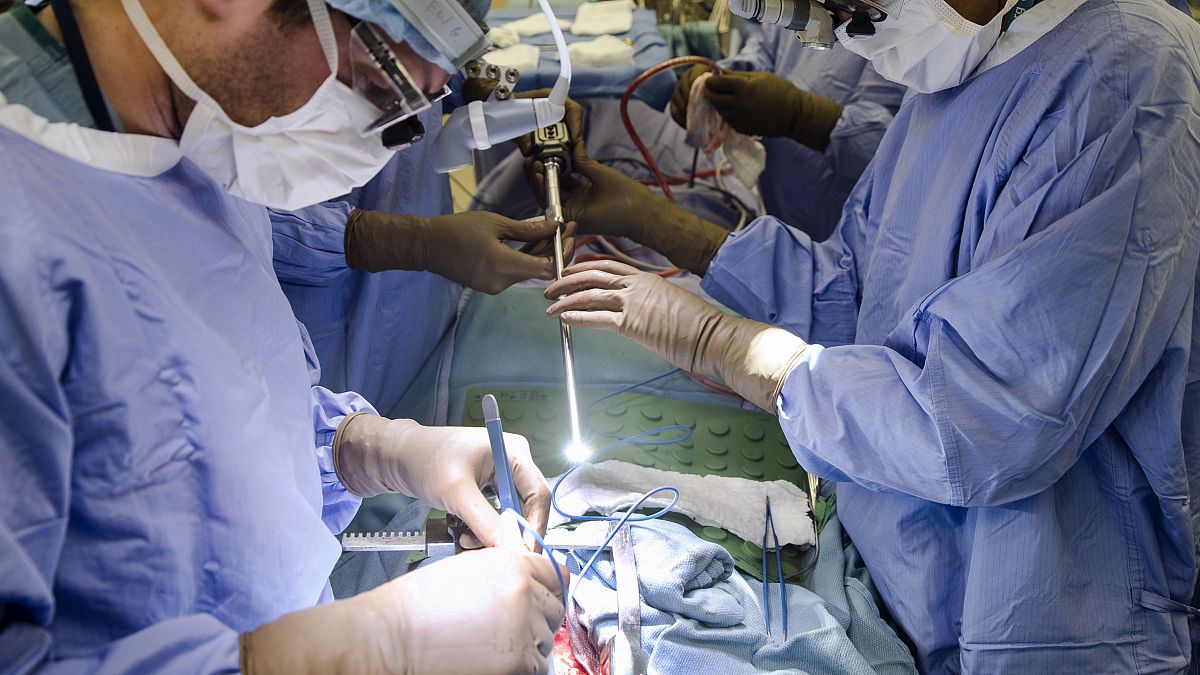Eastern member states tend to have a higher death rate from cancer than their western counterparts.
The European Union has used World Cancer Day to warn that without decisive action deaths from the disease could increase by one-third by the year 2040.
European Commission chief Ursula von der Leyen announced the launch of a cancer inequality registry, which is designed to address the fact that deaths are far higher in some member states than in others.
"It will identify trends disparities and inequalities between member states and regions so that we can better target our support," she said on Tuesday.
According to the latest data from 2018, Eastern European tends to have higher death rates from cancer, with Hungary the worst with 335.4 deaths per 100,000 people. Croatia (323.86) and Slovakia (310.64) were the second and worst-affected respectively.
Lichtenstein (172.12), Switzerland (209.26), and Finland (212.76) had the lowest rate — excluding Turkey which uses a different definition for cancer fatalities. Data for France was not available.
Cancer is one of the leading causes of mortality and morbidity in the World Health Organisation's (WHO) European Region — which includes 53 countries in Europe and Central Asia — accounting for more than 20% of all deaths.
An estimated 2.7 million people were diagnosed with cancer in the EU in 2020 and about 1.3 million lost their lives to the disease.
But many cases may have been missed because of COVID-19. The pandemic which swept globally in 2020 has been a setback for the fight against many diseases, including cancer, as many health care systems were brought to the brink and some surgeries and treatments, deemed non-essential, postponed.
One million undiagnosed cases
WHO Europe chief Dr. Hans Kluge highlighted during a press briefing on Thursday that "during the early stages of the pandemic, the diagnosis of invasive tumors fell by 44% in Belgium; in Italy, colorectal screenings decreased by 46% between 2019 and 2020; in Spain, the number of cancers diagnosed in 2020 was 34% lower than expected."
Although the situation improved in 2021, countries that responded to WHO's latest Global Pulse Survey reported that disruption in cancer care — from screening to treatment — continued in the last quarter of 2021 ranging from 5% to 50%.
"The knock-on effect of this disruption will be felt for years," Kluge warned, adding: "The way in which the pandemic delays cancer care and creates service backlogs, is a deadly interplay."
Von der Leyen said on Tuesday that an estimated 100 million cancer screening tests were not performed in the EU since the pandemic began and that up to one in two people with cancer symptoms were not urgently referred to diagnosis.
"This means that an estimated one million cases could right now be undiagnosed in Europe. And among patients who know they have cancer, one in five are still not receiving the surgical or chemotherapy treatment they urgently need," she added.
Cancer is also the main cause of death by disease in children beyond the age of one.
And the number of cases and deaths is expected to rise in the coming years. The EU Commission, which launched a Beating Cancer Plan in 2020, estimates that "unless we take decisive action now, in the EU by 2040 new cases are set to increase by 21%, while cancer deaths by 31%".
The first stage of the registry is a data tool with the Commission planning to release the first country performance reports, of the EU27 plus Norway and Iceland by the end of the year.
The Commission also announced this week that it aims for 90% of girls in the EU to be vaccinated against human papillomavirus (HPV) by 2030.
